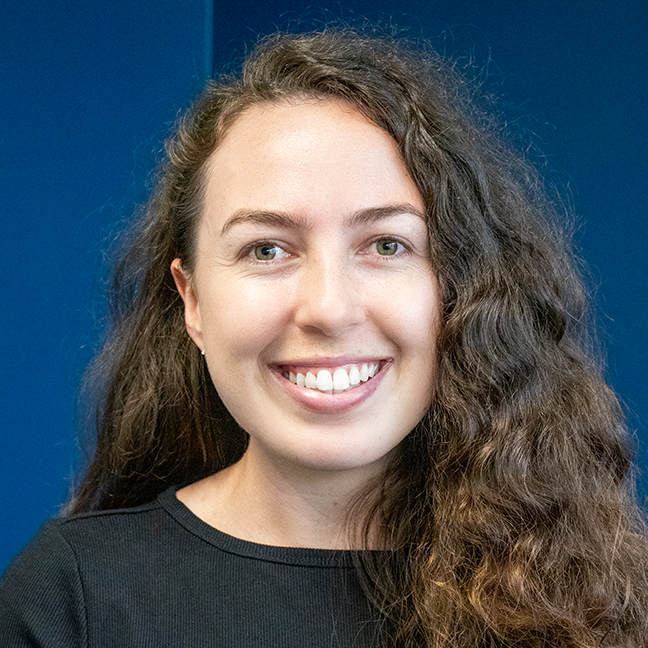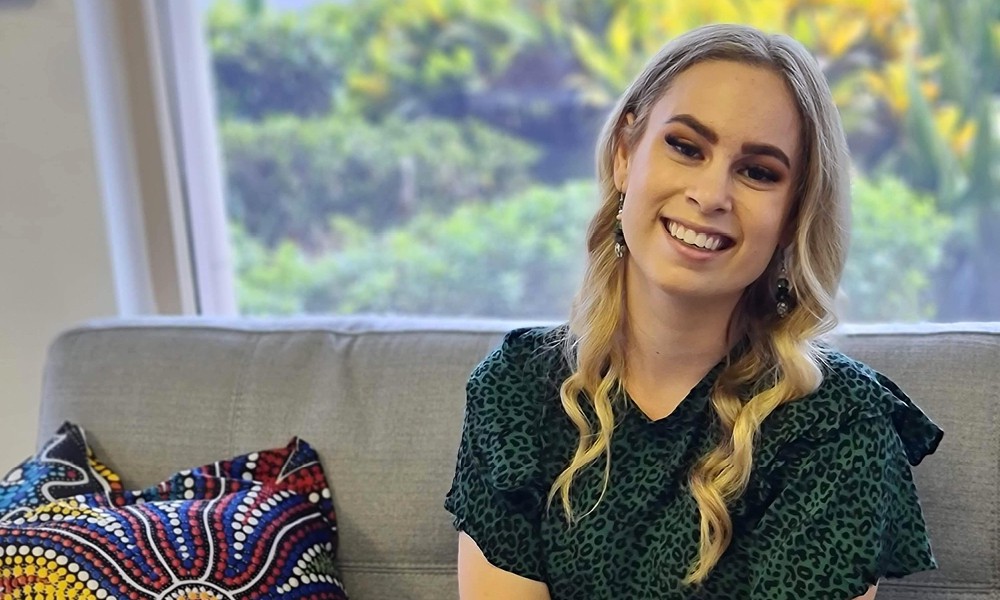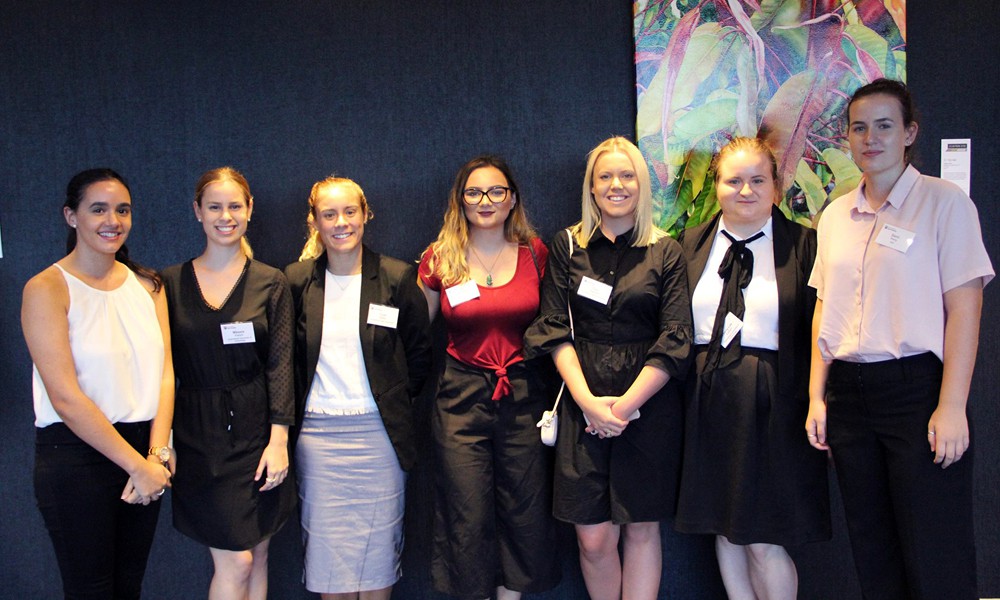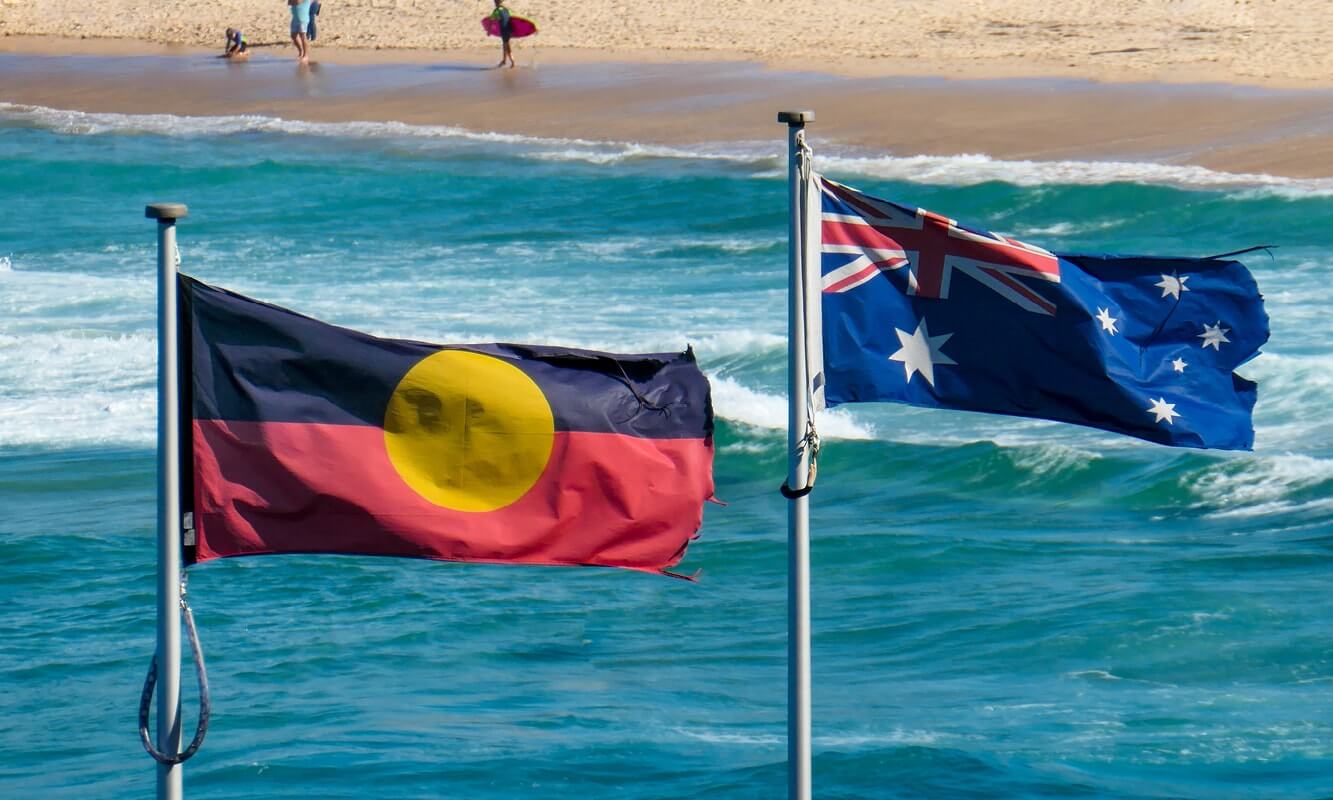It took one visit to the local courthouse as a high school student for Mikaela French to realise there was a lack of legal support available to Indigenous people… and to decide she wanted to do something about it.
Seeing the large number of First Nations people appearing before the court that day – without a lawyer representing them – would spur her on to pursue a career in law and advocate for better outcomes for Indigenous Australians.
During 2016-2017, and while completing her law degree at the Queensland University of Technology, Mikaela participated in ‘LawLink’, a program offered by Queensland Law Society to First Nations law students to provide, among other things, site visits to barristers’ chambers, courts and community legal centres, with the aim of facilitating a smooth transition to the profession.
Today, Mikaela works as a solicitor within an Indigenous law firm, where her focus areas include native title, land rights and cultural heritage. She provides culturally appropriate legal advice to her clients, helping them to gain a clearer understanding of the law and, in turn, make well-informed legal decisions.
QLS Proctor spoke with Mikaela to learn more.
QLS Proctor: Could you tell me a bit about yourself and your cultural background/heritage?
Mikaela: I am a proud Torres Strait Islander with family connections to the Wagadagem tribe of Mabuiag Island and I also acknowledge my paternal Australian heritage.
I am currently working as a solicitor at Marrawah Law, which is the nation’s leading independent Indigenous legal firm. The firm is 100% First Nations owned and female-led, and over 80% of our staff members are female First Nations and women of colour.
Earlier this year I was listed as a ‘Rising Star in Native Title’ in Doyle’s Guide for the first time, which recognised my unique perspective and on-the-ground experience to provide commercial and culturally appropriate advice to our clients.
Outside of law, I am involved in the ‘Australian Indigenous Education Mentoring Program’ which aims to close the gap of education and support First Nations students through their senior years at high school. I also sit as an independent director for the Gurriny Yealamucka Health Services Aboriginal Corporation – an Aboriginal community-controlled health service which delivers primary healthcare within Yarrabah.
QLS Proctor: Could you tell me more about your work as a solicitor?
Mikaela: In my role I support our clients across all aspects of Indigenous land law, including providing advice on transactions, governance, obligations and duties for a range of commercial not-for-profits and First Nations entities.
I am also involved in assisting clients with negotiations for native title claim proceedings in the Federal Court and advising clients in relation to native title processes, cultural heritage management plans/agreements and Indigenous land use agreements. I also support clients with post-determination assistance to empower their communities and protect their cultural heritage and significant sites.
Last year, I had the opportunity to represent respondent parties in a native title determination application which led to a consent determination for the Woppaburra people in the Federal Court. This decision recognised the Woppaburra peoples’ exclusive and non-exclusive native title rights over the land and waters of Great Keppel Islands.
QLS Proctor: You completed LawLink in 2017 – in what ways did you improve your legal knowledge or skillset through the program?
Mikaela: I learnt about the different career opportunities that are available with a law degree and the different clerkship and graduate programs I could apply for post-studies. There were also guest speakers who came from community legal centres and not-for-profit or pro bono backgrounds, which provided a different perspective about the types of legal jobs you could apply for.
I had the opportunity to meet First Nations legal professionals, including lawyers, barristers and judges, and hear about their experiences and career pathways into law and some of the challenges they encountered.
LawLink also provided workshops at law firms, which were a great way to see first-hand what lawyers do and how firms operate. I recall that this was the first time in my legal degree that I had set foot in a Brisbane law firm and got an inside look.
QLS Proctor: How have you used the knowledge gained since then?
Mikaela: The workshops that LawLink provided in relation to résumés and LinkedIn were particularly useful when applying for legal jobs and clerkships, as you got helpful advice from HR representatives from law firms.
The friendships that I made through the program with other First Nations students and lawyers are also connections that I greatly appreciate and value today.
Mikaela (second from left) with some fellow LawLink participants/First Nations law students at a LawLink event in 2017.
As First Nations students and practitioners are a minority, it is important for programs such as LawLink to exist to create culturally appropriate experiences and opportunities to support and empower First Nations people throughout all stages of our studies and into the legal profession.
I would recommend this program to First Nations law students as it is a great program to meet legal professionals, barristers and judges and ask questions in a culturally safe environment. It also provides an opportunity to connect with other First Nations students who are studying at other universities that share a similar interest.
Find out more about LawLink and the QLS First Nations cultural outreach strategy, or reach out to the team at cos@qls.com.au. Also note, the QLS Legal Careers Expo is on this coming Monday (9 May).











Share this article